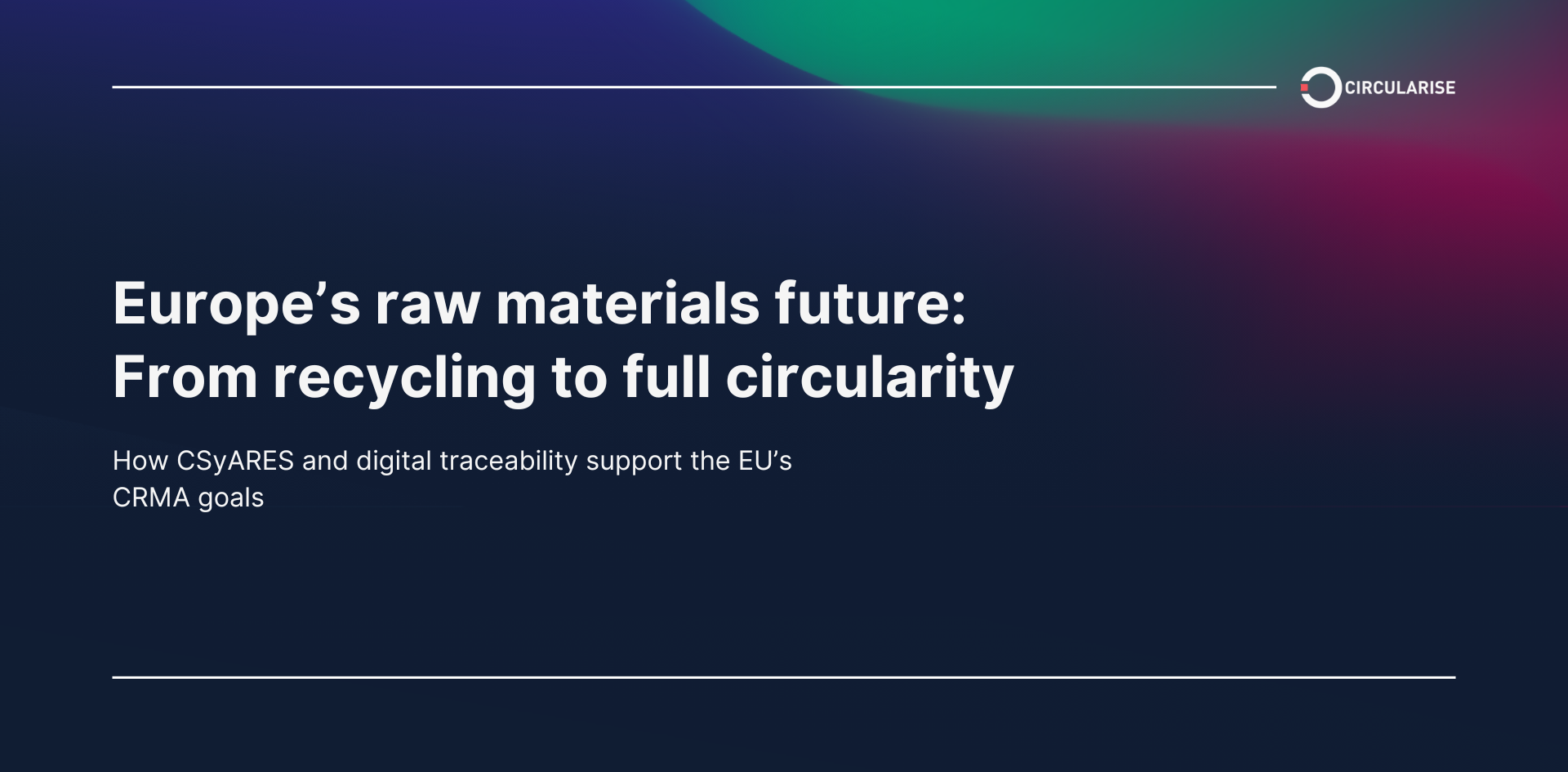The rise of counterfeiting in increasingly complex supply chains is a global challenge that companies are facing these days. A 2021 OECD study identified the value of counterfeit goods to have reached US$509bn, while the Kafrit Group estimates that US$284bn will be spent by governments and companies to combat counterfeiting.
However, it is not just customer satisfaction at risk, but their safety as well. The 2018 EU Customs Report estimates that 34% of all counterfeit border seizures were potentially harmful to consumers. Companies risk significant commercial losses, reputational damage from poorly made counterfeits, and even facing legal liabilities and fines.

For example, The automotive industry is recognised as a key market for counterfeit products with the US Federal Trade Commission valuing the counterfeit auto-part market at roughly US$12m per year. In 2020, Daimler identified nearly 1.7m counterfeit parts, three times the amount identified in 2019. A recent high-profile case involving H&M also highlights how a lack of transparency and traceability around the sustainability of products could bring legal challenges.
How to battle counterfeiting with traceability technologies
As the need for companies to be able to verify the legitimacy of their products and materials grows, so has the market for anti-counterfeiting and traceability technologies in the plastic industry. One of the key roles for anti-counterfeiting focuses on traceability and marking technologies designed to authenticate and verify the properties of products as they move through the supply chain. This can be achieved through unique barcodes, QR codes, speciality inks, and chemical tracers.
TruTag Technologies has developed a series of products for plastic films that combine physical security with digital authentication. Dotz Nano’s plastics additives and marked masterbatches are able to withstand extreme production temperatures and pressures, bringing traceability and transparency to raw materials. Polysecure’s Particle-Fingerprint technology creates patterns that are individual and forgery-proof, while their Poltag technology allows digital material passports to be directly anchored in the material.
Using blockchain to build a transparent supply chain
But while these technologies provide ways to identify counterfeit products, an underlying data infrastructure is still required to securely track and trace these products. By combining these technologies with blockchain, companies can securely and reliably track and trace all the transactions that take place across the supply chain. The decentralised nature of blockchain also removes the need for trust among the parties involved.
Other than complying with plastic regulations globally, greater transparency of supply chains can be one of the most effective anti-counterfeiting measures. However, most companies are hesitant to share information and data because of concerns around exposing sensitive, proprietary information that could undermine their competitive advantage.
Circularise provides an answer to this transparency challenge: a distributed and decentralised public blockchain solution in combination with our patented Smart Questioning technology. Through Smart Questioning, only essential and useful insights will be shared between parties, and, if necessary, regulators. This allows safeguarding of the identity, business relations, production processes, and confidential information across all parties within the value chain. Since it utilises a public blockchain, the data cannot be tampered with and can be confidently trusted by all parties.
How Circularise contributes to supply chain transparency
As we continue to explore how various anti-counterfeiting technologies can be combined with our blockchain traceability technology, we are able to provide more comprehensive anti-counterfeiting and traceability solutions.

Circularise collaborates with auditors and certification bodies, developing solutions to enable them to conduct independent, third-party audits with ease, and to reduce the administrative burden for the companies getting audited. Following a successful pilot with ISCC and top companies, we launched the MassBalancer tool to support the ISCC Plus and ISCC EU certification scheme to manage credit balances for various production sites, automate reports on declarations, and gain in-depth insights, all from one place.
Various circular economy programs, new regulations and policies are driving the technological advances and increasing adoption of these innovative new solutions. With more brands investing in sustainable or recycled materials for environmental and compliance reasons, full traceability of plastics compounds is an essential prerequisite for plastic recycling.
Anti-counterfeiting solutions and supply chain traceability provide protection and authentication for products and brands across many market sectors, but more significantly, it can help to protect your customers, your values, as well as the environment. By implementing robust traceability systems, companies not only ensure global regulatory compliance and operational efficiency but also build trust with consumers, strengthen brand reputation, and unlock new opportunities in circular business models. Ultimately, investing in traceability is not just a compliance measure — it is a strategic step toward a resilient, sustainable, and future-ready business.

Circularise is the leading software platform that provides end-to-end traceability for complex industrial supply chains. We offer two traceability solutions: MassBalancer to automate mass balance bookkeeping and Digital Product Passports for end-to-end batch traceability.
The future of traceability is in digital product passports. Let us help your company scale sustainably.



.png)



